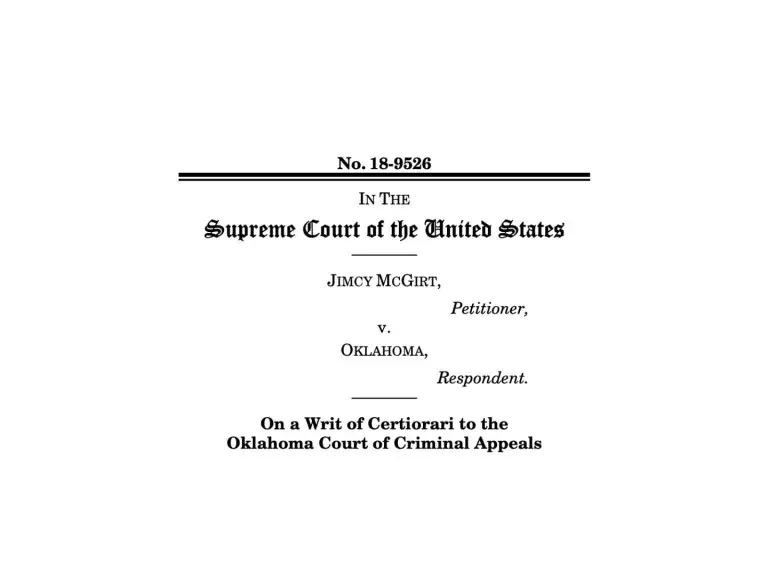
July 9, 2020 | Today, the U.S. Supreme Court held that land in eastern Oklahoma that had been reserved for the Creek Nation in the 1800s remains a reservation today and thus constitutes “Indian country” for purposes of the Major Crime Act, a federal criminal law. Significantly, the Court reiterated that once a reservation is established only Congress can disestablish or diminish it. Here the Court found no ambiguous language in any statute that could possibly be read as an act of cession. Further, with regard to the state of Oklahoma’s long practice of violating tribal sovereignty the Court stated that “unlawful acts, performed long enough and with sufficient vigor, are never enough to amend the law. To hold otherwise would be to elevate the most brazen and longstanding injustices over the law, both rewarding wrong and failing those in the right.” This case is a significant victory for tribes, and a strong reaffirmation of the legal force of Indian nations’ treaty rights, land rights, and right to self-government.
At issue in McGirt was whether the State of Oklahoma could prosecute an enrolled member of the Seminole Nation for crimes committed within the historical Creek Nation reservation boundaries. Jimcy McGirt, who was convicted of crimes by the State, argued Oklahoma could not do so under the Indian Major Crimes Act because crimes involving a Native American victim or perpetrator, or occurring within recognized reservation boundaries, are subject to federal, not state jurisdiction.
McGirt v. Oklahoma is especially significant not only to Indian nations in Oklahoma but also to Native women and children whose safety often depends on having tribal governments with legal authority to protect them and prosecute their abusers. Today’s decision reaffirms the enduring significance of tribal territorial sovereignty, which is an essential element in tribal criminal jurisdiction under the Violence Against Women Act. The Indian Law Resource Center joined the amici curiae brief of the National Indigenous Women’s Resource Center, which offered a unique view on the relationship between Congress’ power over Indian affairs, tribal sovereign authority to prosecute crimes by or against tribal citizens, and restoring safety for Native women and children. Agreeing with the Petitioner and the Muscogee (Creek) Nation that the Creek Nation’s Reservation has never been legislatively disestablished, the amicus brief observed that “[j]udicially disestablishing reservations . . . threatens to place criminal jurisdiction over the crimes committed against the most vulnerable victims in the hands of the sovereign least likely to prosecute.”
Based on this ruling, the Court also issued a per curiam opinion today affirming the decision of the Tenth Circuit Court of Appeals in Sharp v. Murphy, a similar case that had been pending in the Court for more than a year. Sharp v. Murphy’s jurisdictional argument was substantially similar to that in McGirt, namely that the State of Oklahoma could not prosecute a crime that took place on an Indian reservation that had never been disestablished by Congress, instead of on land under state control. In June 2019, the Supreme Court failed to issue a decision in Murphy, and the case was placed on the Court’s calendar for “reargument” during its next Term.
Read the Slip Opinion in McGirt v. Oklahoma
Inland Northwest tribal leaders, lawyers praise key Supreme Court decision on tribal sovereignty | Orion Donovan-Smith, The Spokesman Review, July 9, 2020
